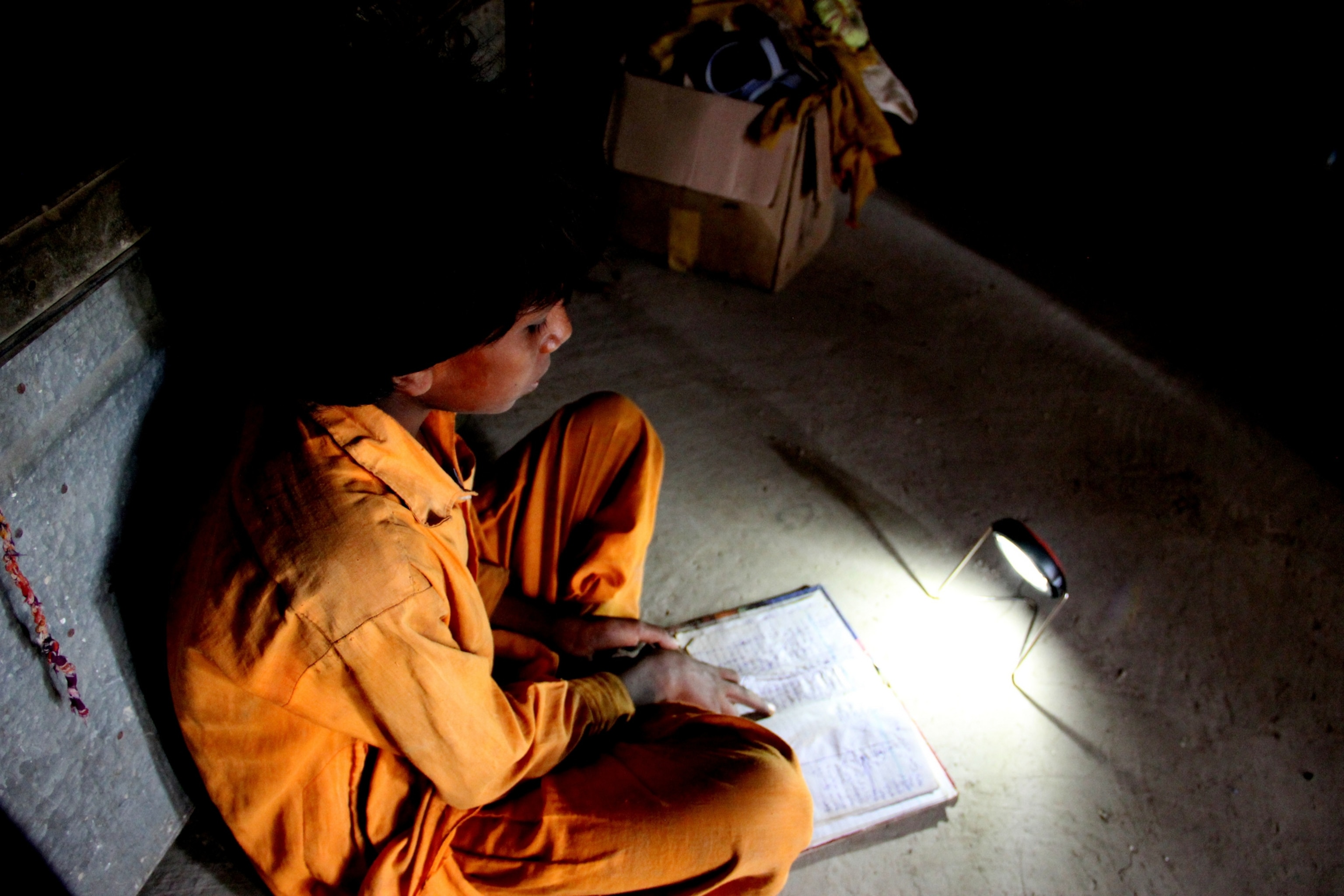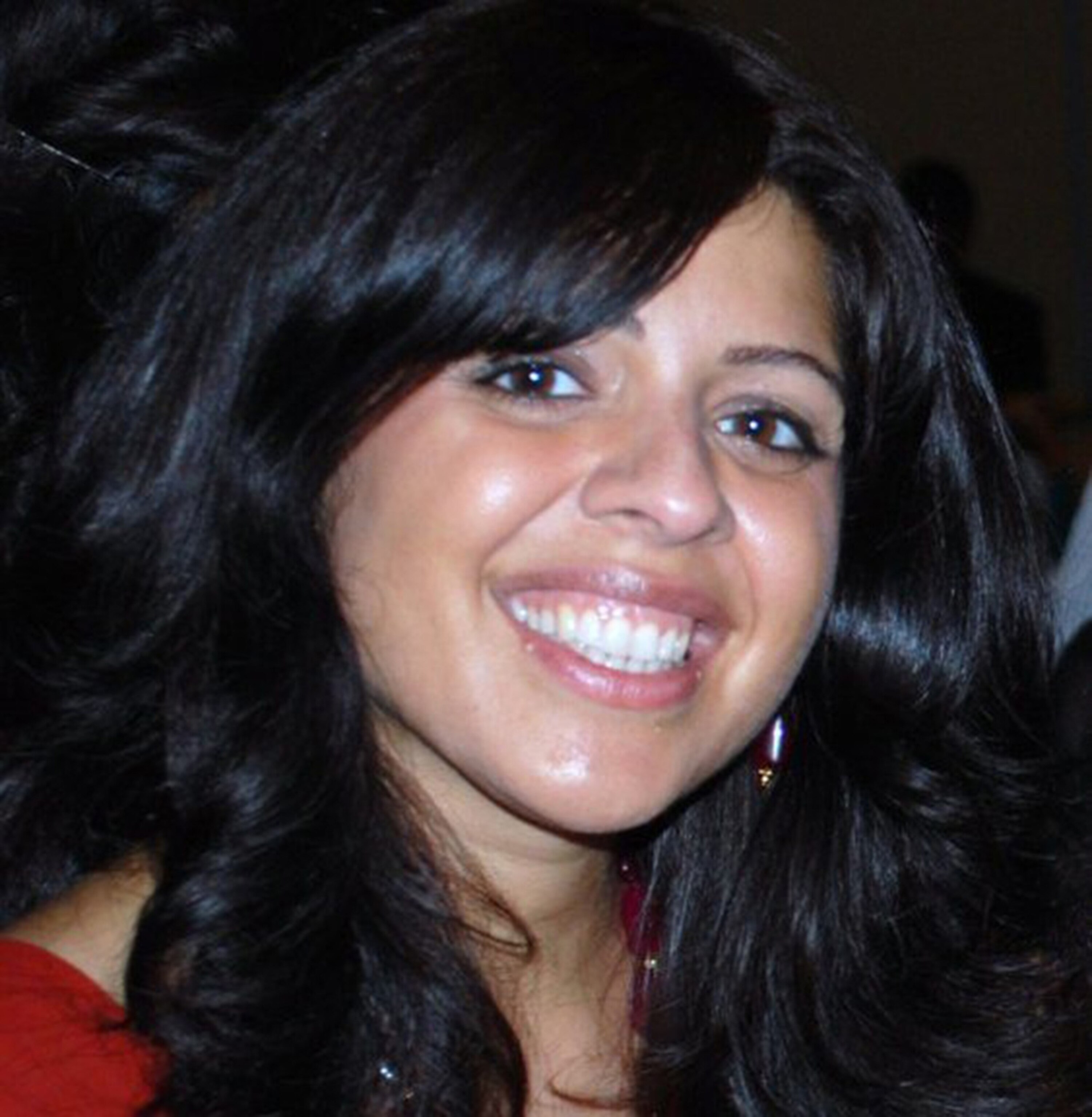
How to Connect With a Heritage—and Make Dad Very, Very Proud
Her parents came from Pakistan, and he was drawn there. Together, they’re bringing light to villagers.
Sitting across from Shazia Khan and Jeremy Higgs, you'd never know they only just met in person for the third time. They display an ease and rapport built from working together for the past five years—he in Karachi, Pakistan, and she in Washington, D.C. Their nonprofit, EcoEnergyFinance, provides affordable solar energy to people in rural Pakistan.
Our talk starts with Khan, an environmental lawyer who was inspired by another nonprofit's energy program in Bangladesh. She began working on a similar effort aimed at Pakistan.

Khan: I was actually going into labor with my second child and thinking, what am I going to do now? I don't have a staff on the ground, I really don't know what I'm going to do. It's going to all fall apart. I had already worked on it for a couple of years and poured my heart and soul into it, and that's when I met Jeremy.
Higgs had come to Pakistan in 2007 on a social enterprise training program. He planned to stay for two months, but new opportunities arose—he also met his wife. He has been there now for more than seven years.
Higgs: What I would see around Karachi was the fact that there were significant scheduled blackouts all the time. I knew that if it's this bad in the major metropolitan city of the country, how much worse is it outside?

He began working on solar lantern distribution in rural Pakistan. A mutual friend noticed Higgs and Khan were working on similar initiatives and introduced them. The two decided partnering made more sense than competing.
Khan: I was very lucky and fortunate that we are very much aligned. It's incredibly important to us that we bring energy access to people in rural Pakistan, because even though that's where most of the unelectrified population lives, the government is not very focused on them.
It's been a very successful partnership. Luckily, there's technology available that allows us to work remotely almost seamlessly, I would say. We communicate through Skype, Google Hangouts, phones, and it's almost as if I'm there.
Higgs: For me, it's a massive challenge to be solved, and I really enjoy solving problems. I have a background in software development, and so I think I'm just wired to look at things as a challenge and to draw out solutions, try different solutions. It's just become a big part of who I am over the past four or five years.
Villagers' stories about the impact of getting reliable access to energy range from lighthearted to sobering. A tea shop owner draws more customers by running a television; a man uses his solar light to track down his stolen sheep at night; another uses it to avoid a snake bite that could have been deadly.
Khan: [One woman] had a young child, who she woke up in the middle of the night to give milk to. She knocked over her kerosene lantern, and his mosquito net caught on fire. He survived, but she switched to a solar lantern.
Khan's parents came to the U.S. from Pakistan in the late 1960s. As a teenager in Albany, New York, her father saved enough money from working multiple jobs to buy a townhouse. He studied to become an electrician, rewired the house, lived in the basement, and rented out the upstairs. He eventually amassed more than 100 real estate properties. He went with her last year to Pakistan.
We’re really lucky. We love what we do.Shazia Khan
Khan: For four days we went and just toured all these villages. He's originally from Hyderabad, although he hadn't been back in a very long time. So I mean it was definitely one of the best moments of my life, being able to bring him there.
Khan begins to tear up while talking. Higgs gets her a tissue.
I feel very lucky, very blessed to be American. I feel like I've had access to just unbelievable opportunities in my life. I've traveled all over the world, I've done really great work all over the world, but to be able to do something really meaningful in Pakistan is just so special.
To be able to to show him what I've been working on and for him to go into the villages where he grew up as a kid… Every time you go to a village it's like a tradition, they give you a shawl which is embroidered with a traditional Sindhi pattern. Every village we went to, they gave us a scarf, and he still has all those scarves. They're really special to him.
He's been so far away for like 40 years. I don't think that he ever thought about going back and doing something to make a change in this place where he grew up, but it's so much more gratifying to be proactive. He had this very romantic, nostalgic view of what Pakistan was like then, but to be able to go back there now and just change it for the better, I think that felt really great and he's really wanted to be a part of it.
EcoEnergyFinance started out selling solar-powered lanterns, and is now piloting pay-as-you go solar power systems for homes and businesses.
Khan: The true cost of [energy] shouldn't be masked by subsidies or by a free giveaway. [People] really need to be able to pay for this thing in order to value it and prioritize it in their life. We've found that our customers really are willing to pay. But it's our obligation then to provide them with something that's high quality with good after-sales service and support, not just walking away once the transaction's done.
The goal is not just to give somebody one light. The goal is to move them to a place where they'll be like us. Where they can have access to lots of different applications through their electricity.
I feel like we're really lucky. We love what we do. We get to work on something that's really going to change people's lives, and not everybody has the luxury of being able to work on something like that.
Higgs: There is this huge opportunity. There's no one else [in Pakistan] trying to tackle this. So if we can be the people to do something about it, that's…
Khan: It's exciting. It's really exciting.
The story is part of a special series that explores energy issues. For more, visit The Great Energy Challenge.
On Twitter: Follow Christina Nunez and get more environment and energy coverage at NatGeoEnergy.